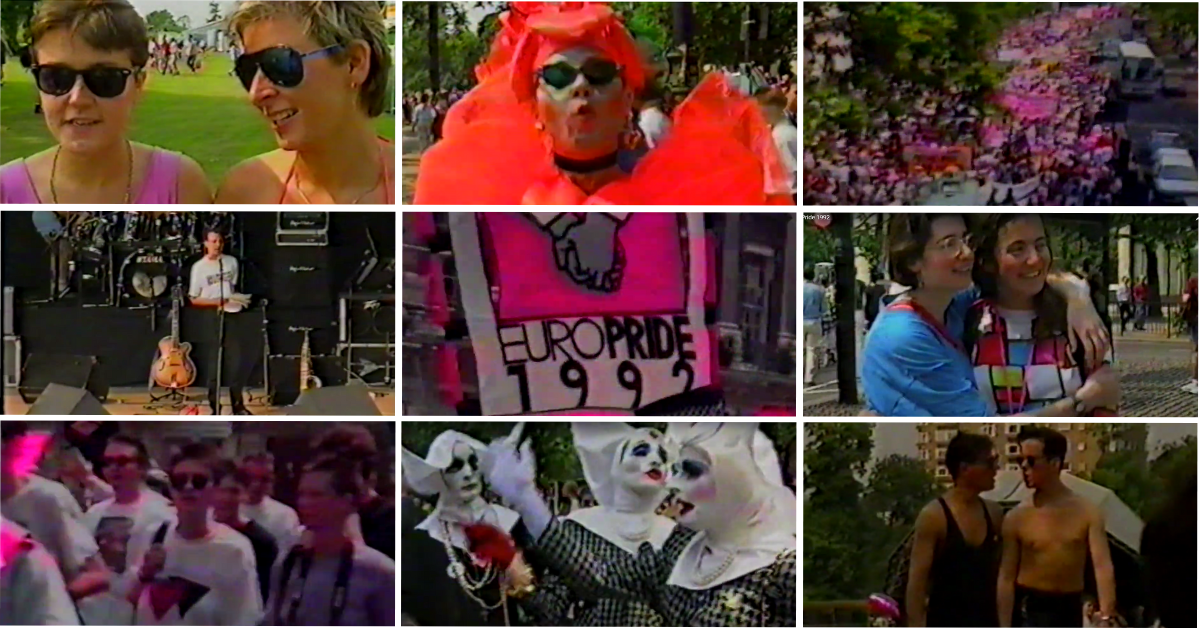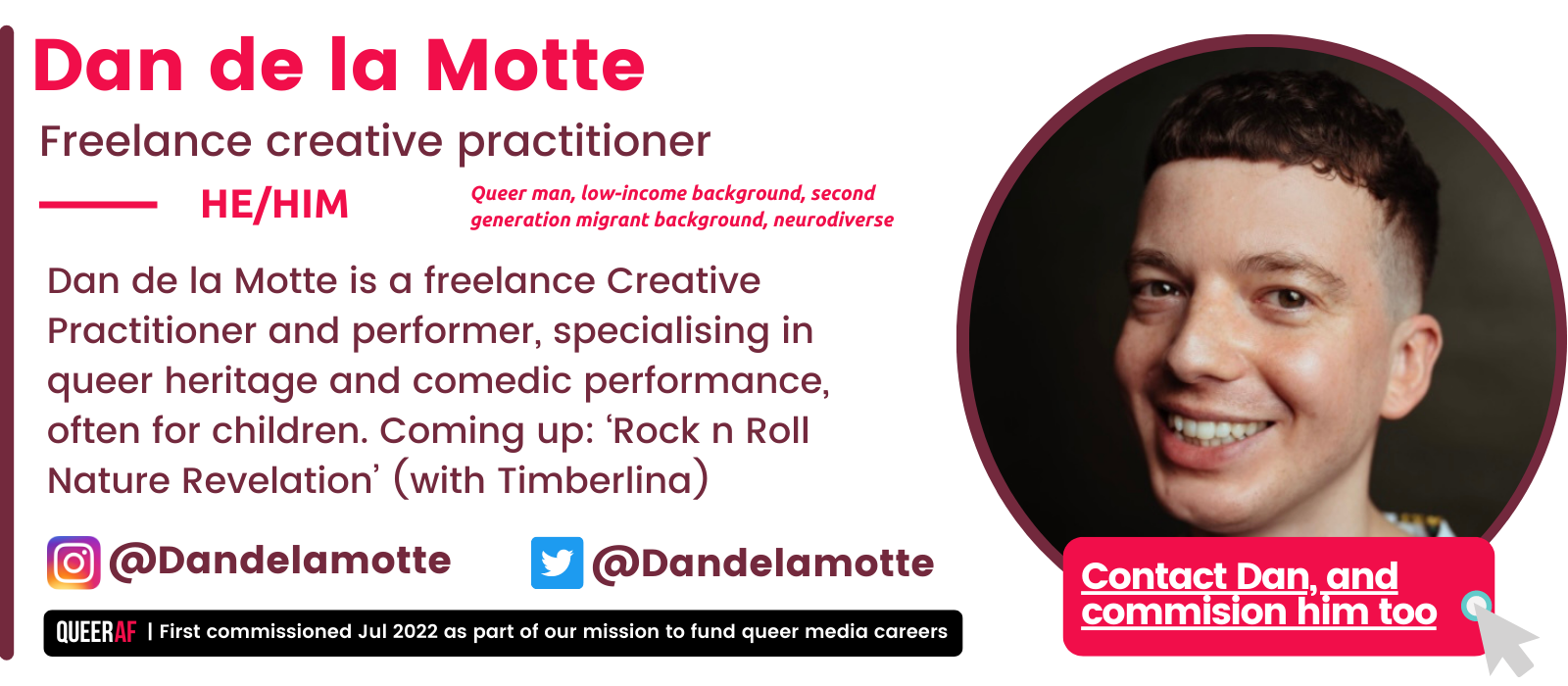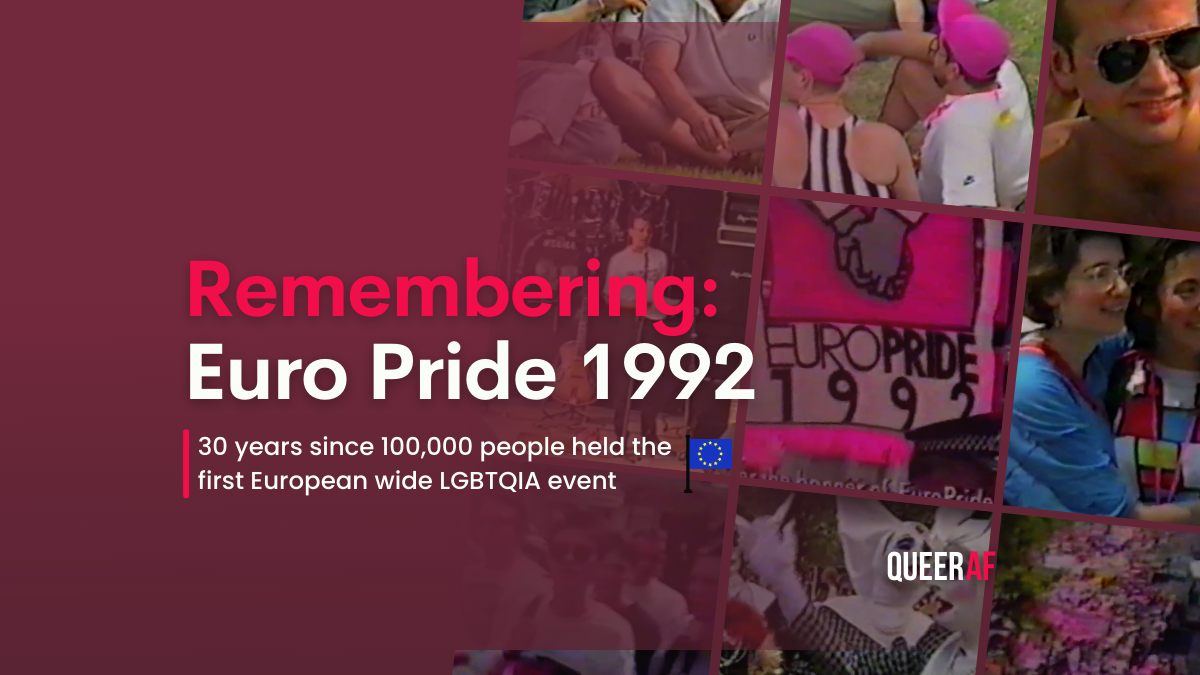
30 years ago a group of London-based LGBTQIA+ folk invited Europe round for a party. A big party.
Over 100,000 LGBTQ+ people made their way from across Europe to Brockwell Park for the first-ever EuroPride protest.
Much has changed since 1992. But, tellingly, much has remained the same.
This Pride was held just 4 years into ‘Section 28’, the first piece of homophobic legislation implemented by a British government in over 100 years. It banned ‘the promotion’ of homosexuality as a ‘pretended’ family unit.
It was held at a time when the maximum punishment for gay male sex was still life imprisonment in Ireland, Cyprus, Estonia and elsewhere.
And of course, 1992 was the height of cruel government inaction on the HIV epidemic. Gay men were dying in numbers ‘usually only seen during wartime’ according to activist Peter Tatchell. The government were doing nothing about it.
It was also a time when the European Community (EC) was labelled ‘Fortress Europe.’ There was the menacing threat of fascism on the rise across the continent.
A politician in France with the surname Le Pen whipping up homophobic and racist hysteria, and a UK government attempting to ‘get back to basics.’ Sound familiar?
It’s interesting what we choose to remember in the subjective process of collective remembering. How a patchwork of disparate reminiscences unites to form an imperfect collective memory.
Cabaret tent organiser Peter Scott-Presland distinctly remembers his performance space being elsewhere than where it’s marked on the map. EuroPride committee member Clare Truscott vehemently (but warmly) disagrees with him. And no one can remember the choir stage.

Our history matters. That's why our members asked us to fund content about it. Have your say, join our free community-led newsletter
Preparing for the Lambeth Links memory walk, my job was to sew literal and metaphorical together; in 1992 the hill towards the back of the park was covered in sections of Aids quilts brought from across Europe.
30 years later, as I lead a group to look out towards this hill, the view was speckled sporadically with sunbathers.
There’s something beautiful in this. The shadows and echoes of the Aids quilt covering that hill remain. The anger and trauma are still justifiably palpable for those who remember it, as well as younger LGBTQIA+ people like me.
This year EuroPride is hosted by Belgrade in Serbia, a country with a more recent traumatic history of LGBTQIA+ pride marches and liberation.
For this reason, it feels right and important for Belgrade to welcome Europe in 2022 where LGBTQIA+ campaigners are still pioneers. Their actions are brave and radical, and a fitting legacy to those who introduced EuroPride to the world 30 years ago.
Get the Queer Gaze in your inbox each week with our free weekly newsletter or pitch to write an edition for us now.

Support Queer Creatives
This article was just one part of our free weekly newsletter that helps you understand the queer headlines and stay on top of the latest LGBTQIA+ content - all while we support queer creatives.
It's written by Jamie Wareham, and a different queer creative each week. Hundreds of people trust us to give them everything they need to navigate the ever-changing queer world, every Saturday morning. 🏳️🌈
We are an independent platform launching the careers of emerging and LGBTQIA+ creatives driven by people, not advertisers.
The Queer Gaze is our landmark scheme commissioning, mentoring and running skill sessions with queer writers.
We rely on members like Jon Holmes who directly funded this piece and asked us to use his funds on stories about our history. Become a QueerAF member to directly commission queer creatives - and see your name here too.
We are QueerAF, and so are you.










